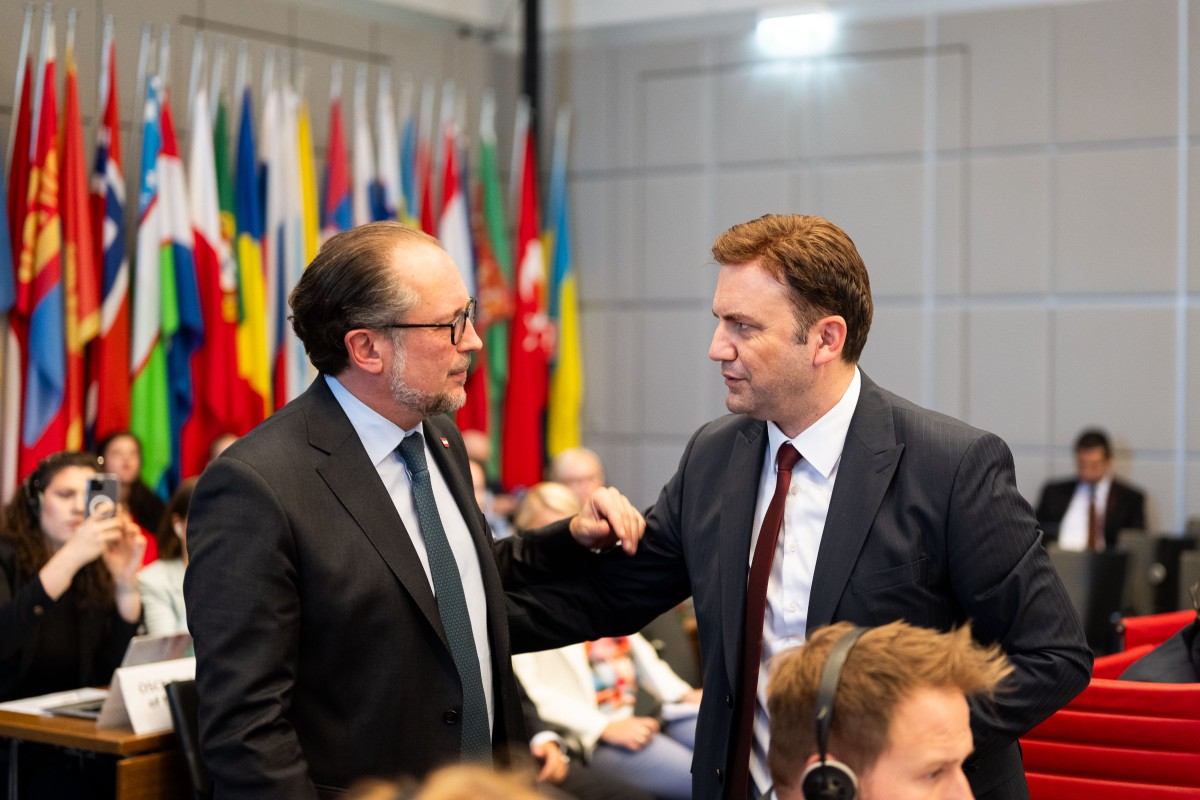Sponsored Content
OSCE in Deep Crisis: Russia's Veto Paralyses Europe's Largest Security Body
The Organisation for Security and Co-operation in Europe (OSCE) is facing its most profound crisis as Russian vetoes block critical decisions, endangering the stability and functionality of the world's most extensive security body. This stalemate emerges from Moscow's continued aggression towards Ukraine, exacerbating tensions between OSCE member states.
 At an Extraordinary Meeting of the OSCE Permanent Council, Foreign Minister Alexander Schallenberg underlined Austria's appreciation of the OSCE. / Picture: © BMEIA Bundesministerium für Europa, Integration und Äußeres / Gruber / Flickr Attribution 2.0 Generic (CC BY 2.0)
At an Extraordinary Meeting of the OSCE Permanent Council, Foreign Minister Alexander Schallenberg underlined Austria's appreciation of the OSCE. / Picture: © BMEIA Bundesministerium für Europa, Integration und Äußeres / Gruber / Flickr Attribution 2.0 Generic (CC BY 2.0)
The OSCE has its origins in 1975, serving as a vital platform for Western powers and the Soviet Union to discuss security concerns. However, since the onset of the war in Ukraine, Moscow has been stonewalling pivotal decisions like approving a budget and electing a new chair for the 57-member institution, scheduled to take place next year.
North Macedonia's Foreign Minister,…
or Log In
Fast News Search





